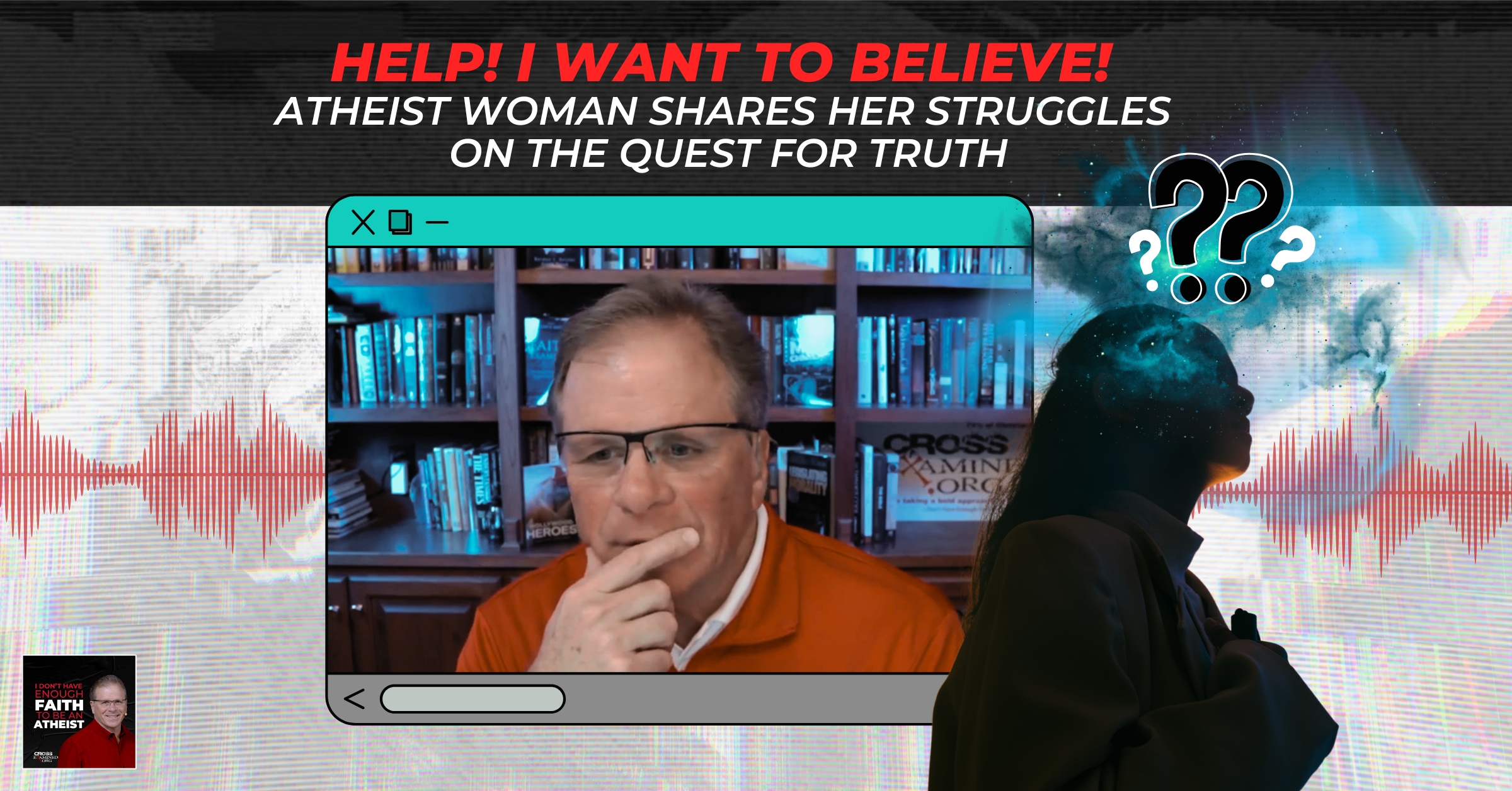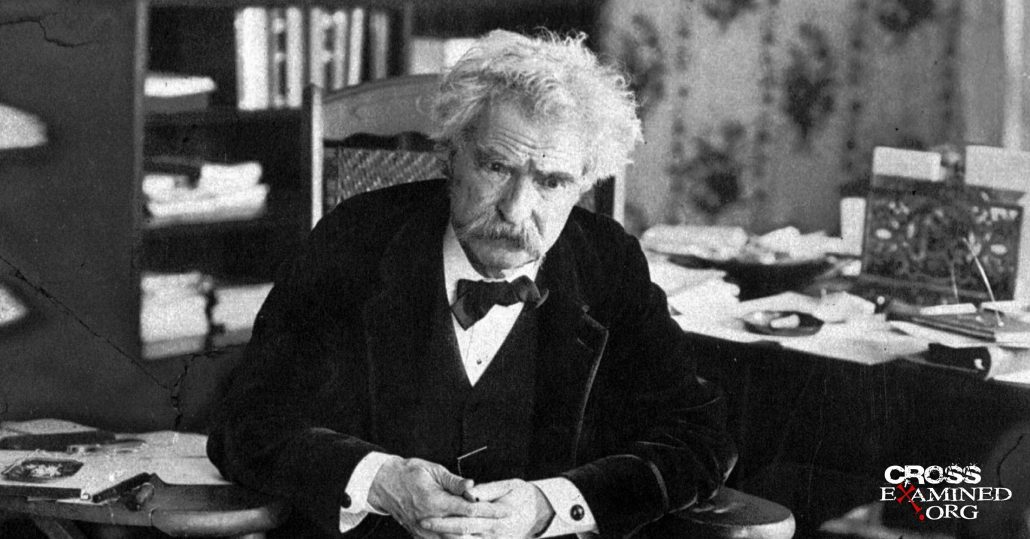By Alisa Childers
It’s that time of year again—the time when Christians come together to celebrate the pinnacle of our faith, the resurrection of Jesus. It’s also the time when news outlets like Time, the Discovery Channel, and Newsweek unleash their skepticism about Christianity, the Bible, and the resurrection. It can be confusing to wade through the various historical evidences, personal beliefs, and opinions floating around in scholarship and the blogosphere. Here are quotes from several sources who all have unique qualifications and an interesting take on the evidence:
1. The Historian
Gary Habermas is an American historian, and the Distinguished Research Professor of Apologetics and Philosophy at Liberty University. He is considered to be one of the foremost scholars on the resurrection of Jesus. While researching the resurrection, he combed through the works of both secular and Christian scholars. He wrote:
I recently completed an overview of more than 1,400 sources on the resurrection of Jesus published since 1975. I studied and catalogued about 650 of these texts in English, German, and French. Some of the results of this study are certainly intriguing. For example, perhaps no fact is more widely recognized than that early Christian believers had real experiences that they thought were appearances of the risen Jesus. A critic may claim that what they saw were hallucinations or visions, but he does not deny that they actually experienced something.[1]
There is a virtual consensus among scholars who study Jesus’ resurrection that, subsequent to Jesus’ death by crucifixion, his disciples really believed that he appeared to them risen from the dead.[2]
2. The Atheist
Gerd Ludemann is a German New Testament scholar, historian, and atheist. He was once a professing Christian, but walked away from his faith when he became convinced that very little of what is contained in the New Testament is historically reliable. Even so, he wrote:
It may be taken as historically certain that Peter and the disciples had experiences after Jesus’s death in which Jesus appeared to them as the risen Christ.[3]
3. The Skeptic
Bart Ehrman is the Distinguished Professor of Religious Studies at the University of North Carolina at Chapel Hill. He is one of the most respected scholars in the field of New Testament studies—and he is agnostic. About the resurrection of Jesus, he wrote:
Historians, of course, have no difficulty speaking about the belief in the resurrection of Jesus, since this is a matter of public record. It is a historical fact that some of Jesus’ followers came to believe that he had been raised from the dead soon after his execution. We know some of these believers by name; one of them, the Apostle Paul, claims quite plainly to have seen Jesus alive after his death. Thus, for the historian, Christianity begins after the death of Jesus, not with the resurrection itself, but with the belief in the resurrection.[4]
In a recent blog post he wrote:
The most important thing to stress is that there are two historical realities that simply cannot be denied. The followers of Jesus did claim that Jesus came back to life. If they had not claimed that, we would not have Christianity. So they did claim it. Moreover, they did claim that they knew he rose precisely because some of them saw him alive again afterward. No one can doubt that.[5]
4. The Theologian
The type of historical evidence above caused leading New Testament scholar, historian, and theologian N.T. Wright to conclude:
As a historian, I cannot explain the rise of early Christianity unless Jesus rose again, leaving an empty tomb behind him.[6]
5. The Ex-con
Charles Colson, who once served as Special Counsel to President Richard Nixon, famously went to prison for his involvement in the Watergate scandal in the early 70’s. He became a Christian in 1973, largely due to the evidence for the resurrection of Jesus. One detail regarding Watergate was similar to the resurrection: in both cases, 12 men claimed something that would affect world history. In the case of Watergate, it only took two weeks for them to crack under pressure:
The real cover-up, the lie, could only be held together for two weeks, and then everybody else jumped ship in order to save themselves. Now, the fact is that all that those around the President were facing was embarrassment, maybe prison. Nobody’s life was at stake.
But what about the disciples? Twelve powerless men, peasants really, were facing not just embarrassment or political disgrace, but beatings, stonings, execution. Every single one of the disciples insisted, to their dying breaths, that they had physically seen Jesus bodily raised from the dead. Don’t you think that one of those apostles would have cracked before being beheaded or stoned? That one of them would have made a deal with the authorities? None did.
Jesus is Lord: That’s the thrilling message of Easter. And it’s an historic fact, one convincingly established by the evidence—and one you can bet your life upon. Go ahead researchers—dig up all the old graves you want. You won’t change a thing. He has risen.[7]
Even the atheists and skeptics confirm that Jesus’ disciples claimed and believed that they had seen Jesus risen from the dead. History tells us that they were willing to suffer and die for that belief. It’s reasonable to confidently agree with what the church has affirmed over the centuries—”Christ is risen. He is risen indeed!”[8]
References:
[1] Gary R. Habermas & Michael R. Licona, The Case for the Resurrection of Jesus (Kregel Publications, Grand Rapids, Michigan, 2004) p. 60 (Emphasis mine)
[2] Ibid., p. 49
[3] Gerd Lüdemann, What Really Happened to Jesus?, trans. John Bowden (Louisville, Kent.: Westminster John Knox Press, 1995) p. 80
[4] Bart Ehrman, The New Testament: A Historical Introduction to the Early Christian Writings (Oxford University Press, New York, Oxford, 2004) p. 234 (Emphasis mine)
[5] Bart Ehrman, “Questions on the Resurrection and My Personal Spiritual Experiences: Readers’ Mailbag” www.ehrmanblog.org, March 24, 2017, accessed April 6, 2017
[6] N.T. Wright, “The New Unimproved Jesus,” Christianity Today (September 13, 1993), p. 26 (Cited by William Lane Craig, “The Resurrection of Jesus” www.reasonablefaith.org, accessed April 6, 2017)
[7] Charles Colson, “An Unholy Hoax?” www.epm.org, March 29, 2002, accessed April 6, 2017.
[8] John 11:25-26
Recommended resources related to the topic:
Early Evidence for the Resurrection by Dr. Gary Habermas (DVD), (Mp3) and (Mp4)
Cold Case Resurrection Set by J. Warner Wallace (books)
Jesus, You and the Essentials of Christianity – Episode 14 Video DOWNLOAD by Frank Turek (DVD)
The Footsteps of the Apostle Paul (mp4 Download), (DVD) by Dr. Frank Turek
__________________________________________________________________________________________________________________________________________________
Alisa Childers is an American singer and songwriter, best known for being in the all-female Christian music group ZOEgirl. She has had a string of top ten radio singles, four studio releases, and received the Dove Award during her time with ZOEgirl. In later years, Alisa found her life-long faith deeply challenged when she started attending what would later identify as a Progressive Christian church. This challenge pushed Alisa toward Christian Apologetics. Today you can read, listen and watch Alisa’s work online as well as purchase her recently published the book on Progressive Christianity titled Another Gospel.
Original Blog Source: https://cutt.ly/0bhcMCI










